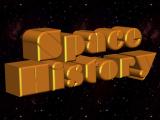If you are not already a subscriber, you are welcome to enter your email address here to sign up to receive the Space History newsletter on a daily basis. Under no circumstances will we release your legitimate email address entered here to outside persons or organizations, and it will only be used for mailing the specific information you have requested.
| Enter your email address here: |
Unsubscribe instructions are included in every newsletter issue in case you decide you no longer wish to receive it.
Note: We record the IP address from which subscriptions are entered to help prevent SPAM abuses.
Race To Space
Someone will win the prize...
... but at what cost?
Visit RaceToSpaceProject.com
to find out more!
1784
13 year old Edward Warren made the first balloon flight in the US at Baltimore, Maryland.
ref: fly.historicwings.com
1903
M. Wolf discovered asteroid #512 Taurinensis.
1911
Born, Nikolai Dmitriyevich Kuznetsov, Russian Chief Designer and General Designer 1949-1994 of OKB-276, worked on engines for the N1 Moon rocket
ref: en.wikipedia.org
1912
Born, Alan Mathison Turing, British mathematician, logician, cryptographer, often considered a father of modern computer science
ref: en.wikipedia.org
1924
V. Albitzkij discovered asteroid #1022 Olympiada.
1928
The third Opel rocket-car, Rak III, was mounted on railroad tracks near Celle, Germany. The first run, with 10 rockets, reached 290 kph (180 mph). A second run, with 24 rockets, jumped the tracks and demolished the vehicle.
ref: en.wikipedia.org
1930
Born, Donn F. Eisele (at Columbus, Ohio, USA), Colonel USAF, NASA astronaut (Apollo 7; over 10d 20h in spaceflight) (deceased)

Astronaut Donn Eisele, NASA photo S64-31469 (10 Sept. 1964)
Source: Wikipedia (spaceflight.nasa.gov killed 25 Feb 2021)
ref: www.nasa.gov
1931
Wiley Post (pilot) and Harold Gatty (navigator) left Roosevelt Field on Long Island, New York in the Winnie Mae on a record setting flying trip of 8 days, 15 hours and 51 minutes around the world in a single-engine plane.
ref: en.wikipedia.org
1938
The Civil Aeronautics Act was signed into law in the US, forming the Civil Aeronautics Authority.
ref: www.jstor.org
1950
The first run of a rocket-propelled research sled was made on the 3,550-foot track at Holloman AFB.
ref: www.hq.nasa.gov
1957
S. B. Nicholson discovered asteroid #1647 Menelaus.
1961 22:00:00 GMT
NASA and the USAF launched X-15A Mach 5, Aerodynamics, Stability test mission # 38 in which Major Robert M. White flew to 107,700 ft (32.827 km, 20.398 mi) with a maximum speed of 3603 mph (5798 kph, Mach 5.27) and lost cabin pressure during the flight.
ref: en.wikipedia.org
1968
The first successful static test of the EU-15 test article of the USSR's N1 1200 ton thrust Block B second stage was conducted.
ref: www.russianspaceweb.com
1970 14:24:00 GMT
USSR launched the Meteor 1-5 weather satellite from Plesetsk.
ref: nssdc.gsfc.nasa.gov
1977 09:16:00 GMT
The US Navy and Air Force launched NTS 2 (Navigation Technical Satellite), a GPS precursor, from Vandenburg, California. The satellite operated 50% satisfactorily after launch, and was still operating 25 years later.
ref: nssdc.gsfc.nasa.gov
1981 10:53:00 GMT
The NOAA 7 weather satellite was launched from Vandenburg, California.
ref: nssdc.gsfc.nasa.gov
1987
W. Landgraf discovered asteroid #3683 Baumann.
1987 07:37:00 GMT
USSR launched the Cosmos 1861 navigation satellite from Plesetsk for locating vessels in the Soviet merchant marine and shipping fleet, facilitation of amateur radio communication, and conduct of experiments for scientific and educational purposes.
ref: nssdc.gsfc.nasa.gov
1990 11:19:00 GMT
The Intelsat 6 F-4 communications satellite was launched from Cape Canaveral, Florida on a Titan 34D, and positioned in geosynchronous orbit at 38 deg W in 1990; 27 deg W in 1990-1992; 60 deg E in 1992-1999.
ref: nssdc.gsfc.nasa.gov
1992 08:00:00 GMT
USSR launched the Resurs F-15 landsat from Plesetsk, which returned a capsule from orbit on 9 July 1992.
ref: nssdc.gsfc.nasa.gov
2004 22:54:00 GMT
The US Air Force launched NAVSTAR 55 (USA 178) from Cape Canaveral, a GPS 2R-12 navigation satellite (GPS Block 2R).
ref: nssdc.gsfc.nasa.gov
We are going to run out of oil!
Visit SpacePowerNow.org
to help fix the problem.
SpacePowerNow.org - For Human Survival
Please help support our efforts by shopping from our sponsors.
This newsletter and its contents are Copyright © 2006-2025 by The L5 Development Group. All rights reserved. - Publication, in part or in whole, requires previous written permission. - Academic or personal-use citations must refer to http://L5Development.com as their source. Thank you for your cooperation.
Space History Department
Resources
The L5 Development Group Home Page
The L5 Development Group Keyword Access System
Space History for June 23 /
Webmaster /
Script last modified August 23, 2018 @ 6:05 am
Copyright © 2006-2025 by The L5 Development Group. All rights reserved.
Hosted by FKEinternet






